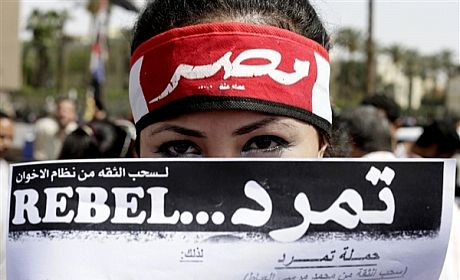Egypt’s Developments not to Bashar Assad’s Advantage

During the last year when Mohammad Morsi was at the helm of political power in Egypt, the Muslim Brotherhood made numerous mistakes. As has been proposed several times, the Egyptian society is an anti-Zionist society and against this regime’s occupation of the Palestinian territories. Due to its common borders with occupied Palestine and the problems Egypt had, during its 60-year history, with Israel, the history of this country is filled with incidents which have brought the people of Egypt closer to an anti-Zionist position and the approach of the people and different groups in Egypt is generally a resistance approach against Israel. Within this framework, the approach which the Muslim Brotherhood and Morsi have pursued in dealing with the Zionist regime and the issue of the Palestinians has not been a correct approach and seemed rather questionable, in particular under conditions when it was expected that relations between this country and Israel would change following the coming to power of Morsi and Muslim Brotherhood in Egypt. Many assumed that with the developments which had occurred in Egypt, the government would attempt to seriously assist the people of Gaza through the Rafah border which was under Egypt’s control. But this measure was never taken and there were practically no changes in Egypt’s relations with the Zionist regime.
On the other hand, under circumstances when the quartet committee was formed by Egypt and Morsi himself to solve the Syrian crisis, and the fact that this proposal could have been a very important factor in facing the realities of the scene in Syria, this proposal was suddenly withdrawn and, by changing its position with regard to the crisis in Syria, Egypt shut down the Syrian embassy in Egypt. It seems that this measure was taken due to the pressures exerted by the radical Salafis who gave advice to Morsi, on one hand, and by the influence of Qatar and Turkey, on the other. Therefore, alongside Morsi’s mistake in continuing the previous policy with regard to the Zionist regime, his policy regarding Syria also added to this government’s mistakes in foreign policy.
Now it is a good opportunity for the new Egypt to redefine its positions with regard to the developments in the region. Perhaps the most important issue is, with the new developments in Egypt, how will the position of this country regarding the Syrian crisis be formed? Of course, it must be taken into consideration that there are differences in ideology and policy between the different sides that are currently present in Egypt’s political scene and who oppose Morsi and the Muslim Brotherhood and have the upper hand. These groups include the Civil Disobedience Movement, the National Youth Salvation Front, the April 6th Youths, Ahmed Shafik and Mubarak’s supporters, and some Islamists who had previously stood by Morsi. Due to their different viewpoints, by nature, with regard to international and regional developments, they will certainly have contradictions with each other regarding the regional issues, particularly the crisis in Syria. Today’s conditions in Egypt are not stable. It must be noted that if the situation on the ground moves toward more violence and bloodshed, the Egyptian army would have to officially and openly enter the scene and the issue of the establishment of the new government would certainly be faced with serious ambiguity. As long as a government is not established, taking positions with regard to the developments in Syria will not be an issue.
The other point which must not be ignored is that the approach of a government which is established in Egypt with regard to the crisis in Syria depends on the affiliation of the majority of this government. As mentioned before, there are different ideologies among the Morsi opponents who are being mentioned today to form a government. Among them are liberal personalities who previously supported Mubarak and resistance forces who are relative supporters of the government in Syria. Hence, we must see which group would have the majority in the new government that could then impact the new positions of the Egyptian government. So long as the general form of Egypt’s political future is not determined, no one can have an accurate prediction with regard to the future positions of this country regarding Syria.
Nevertheless, it must not be expected that Egypt’s approach with regard to Syria would generally change. Considering the fact that Egypt is an influential member of the Arab League, it cannot take positions beyond the agreements made between the Arab countries. Following the recent developments and Morsi’s political failure, the position of the future government of Egypt with regard to Syria could be more moderate and balanced. But the assumption that Egypt would be among Syria’s supporters is not correct and must not be expected.

